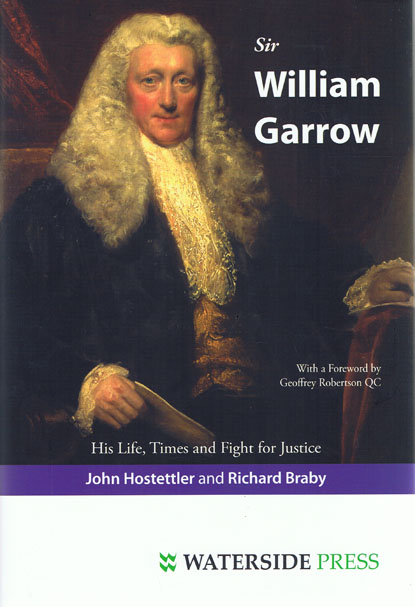
The full and real account of Sir William Garrow's life, based on many hitherto inaccessible materials.
Sir William Garrow: His Life, Times and Fight for Justice will be invaluable to anyone wishing to understand the development of the criminal trial and learn about legal history in the making. The ideal present for any lawyer or advocate or genealogist.
Sir William Garrow was born in Middlesex in 1760 and called to the Bar in 1783. He was the dominant figure at the Old Bailey from 1783 to 1793, later becoming an MP, Solicitor-General, Attorney-General and finally a judge and lawmaker within the Common Law Tradition.
His main claim to fame, however, rests on that 10-year practice at the Old Bailey. Prior to 1732 prisoners on trial at the Old Bailey and other Assize courts for felony (which generally attracted the death penalty) were not permitted to instruct counsel to defend them. Trials were heavily weighted in favour of the prosecution and perjury was rife. As a consequence, almost imperceptibly judges gradually began to allow defence counsel to cross-examine prosecution witnesses.
Garrow developed aggressive cross-examination to such an art and the lawyers captured the courtroom to such effect that the judge and jury ceased to participate in the conduct of the trial as they had hitherto. This led to adversary trial and rules of evidence, such as the presumption of innocence, which formed a culture of human rights that was later elevated into constitutional status by the US Bill of Rights and the French Declaration of the Rights of Man and spread around the globe.
A brilliant addition to John Hostettler's series of legal biographies and histories. Based on extensive research and a lifetime of experience as a leading legal author and commentator.
With the BBC TV series Garrow’s Law and this book Sir William Garrow is about to enter the nation’s consciousness for his ‘gifts to the world’ - as the originator of the modern-day presumption of innocence, the right to universal legal representation and access to justice in a criminal court, expert crossexamination and early traces of human rights.